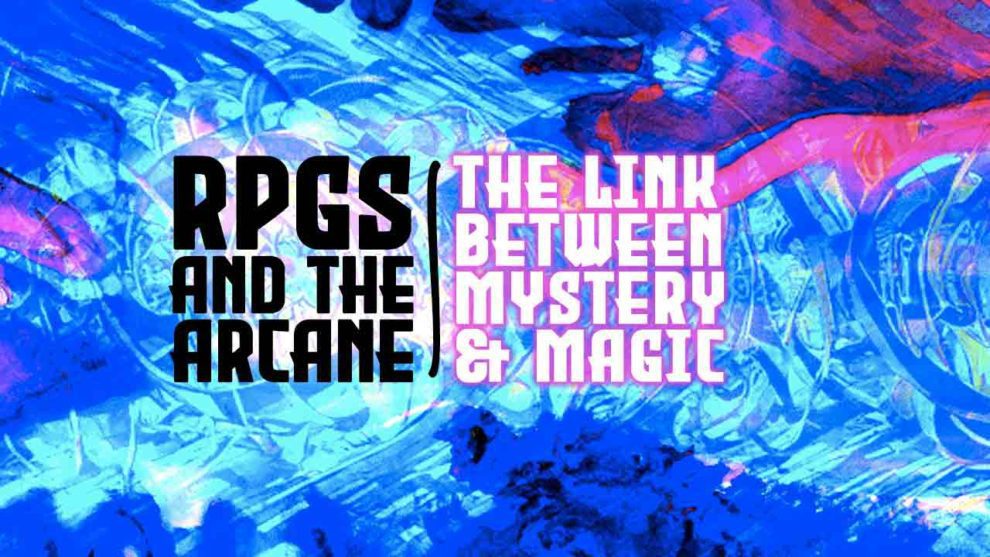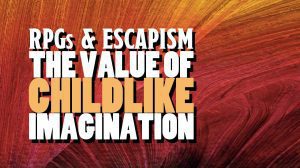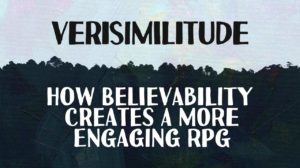The humble court wizard. One of seemingly infinite power, who makes the laws of time and space roll over and play dead. Bedecked in dazzling robes and an impressive hat, their command over the arcane arts makes them a force as mystifying as they are intimidating.

This is the sort of description I associate with the practice of magic in fantasy settings. It is certainly a touch cliché. I wouldn’t blame anyone for finding this conception of wizardry to be old-hat. However, there are a few useful things we can learn about RPG writing through how we utilize magic in our worlds. The question we must ask is: what distinguishes magic in our setting from science, where the explanations of phenomena are very clear to us? How is the mystery of magic useful to us as Dungeon Masters, and perhaps creative writers more broadly?
This question has a deceptively simple answer. To put it simply, magic should be mysterious.
To demonstrate what I mean, I’d like to pull upon real-world stage magicians as an example of how mystery creates a compelling magic system. When Penn and Teller fire a pair of revolvers at one another only to catch the bullet in their teeth, we are dumbstruck by this act of death-defying theatrics. Obviously, there’s a trick to this. We know that there is no way to catch a bullet in your teeth without getting an early visit from the grim reaper. What makes this a compelling act of magic is the mystery of how they achieved it.
It’s literally unbelievable. A combination of theatrics and hidden knowledge to sell the trick. To see what we know can’t be true, but have our frail, human perceptions tricked by the smoke and mirrors.
Let’s circle back to Dungeons and Dragons now. Magic, by definition, is meant to be inexplicable; magic is the use of supernatural or mysterious forces to manipulate the natural world. This is what distinguishes magic from the academic or scientific. These are studies with laws and rules. Arthur C. Clark once said, “Any sufficiently advanced technology is indistinguishable from magic.” Though it might look magic to a layman, a chemist is not performing magic when tossing sodium metal into a body of water, nor does a botanist leave the explanation of photosynthesis to mystery. There are definitive explanations for these phenomena. Magic, conversely, must create questions in our mind that remain unanswered.
You need your players to question how these things are done. When a wizard points their finger and causes a goblin to burst into flames, they should be incredibly knowledgeable about how it happened. They should perhaps not have the perfect explanation for why. This should be impossible to justify or explain, to some degree. Your magic system can walk right up to the edge of science. Almost perfectly explained and studied by the wizards and witches of your world, but not quite. There should be an x-factor that would bridge the gap between science and magic. You shouldn’t step over the line by eliminating this x-factor. That takes it from magic to science, and robs it of everything that makes it unique.
I’ve talked a lot about magic conceptually, so let’s get into how we can practically apply this to our games. Players have access to a lot of magic, and this magic comes with hard rules and restrictions that apply to gameplay. When a player chooses to play a wizard, they have a specific number of spells they can cast between rests and they have a spellbook that dictates what spells are available to them. This is good from a balance standpoint; a wizard who can throw a slew of apocalyptic level magic with no restrictions is a wizard who is impossible to deal with for the Game Master. These restrictions should apply to the GM as well. You should try your best to maintain a level playing field when it comes to the player/GM balance. If the GM is dropping a meteor on the players’ heads every round, that is not a fun experience for the players.
So we know the balance in terms of spellcasting is important. How do we introduce mystery into this scenario? It’s simple really: your bad guys should have access to spells and abilities that the players do not have access to.
As a player, they might feel they have a good grasp of how magic works in the setting. They’re casting spells back and forth with some big, bad lich only for the lich to whisper an incantation, catch the PC wizard’s firebolt, and throw it right back harder. This is a mysterious and confounding experience for the players. In the same way we don’t know how the stage magician seems to catch the bullet in his mouth, we don’t know how this lich is now catching and reversing our spells.

There are a million different ways you can utilize this philosophy. A druid who transforms into a bear, only to begin summoning plants and vines to battle the heroes. A sorcerer who casts a concentration spell only to cast another, revealing they can maintain concentration on two spells at once. A warlock who follows a patron the players don’t know about, giving them access to a myriad of abilities they hadn’t dared consider. Keep your players guessing, disrupt their understanding of magic and you’re dealing with a far more compelling system that demands some on-the-fly thinking and improvisation.
To sum it up as simply as possible, introduce a little mystery into your setting. Take inspiration from the awe and wonder that you experience when watching magicians in real life. Keep the magic strange, theatrical, and unpredictable, and watch your players begin to question how many other secrets there can be, how many questions they didn’t even think to ask, and how many mysteries remain undiscovered.









Add Comment